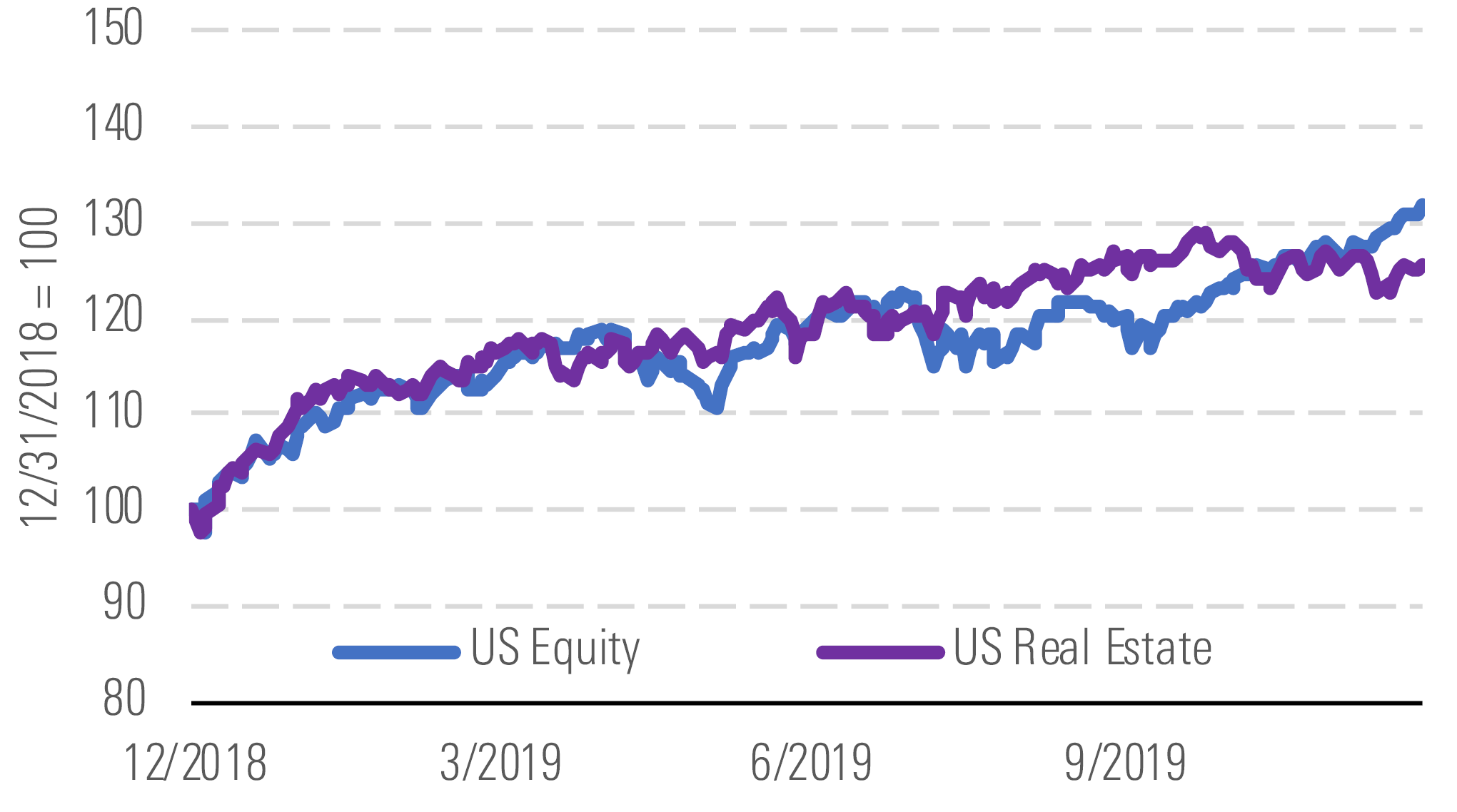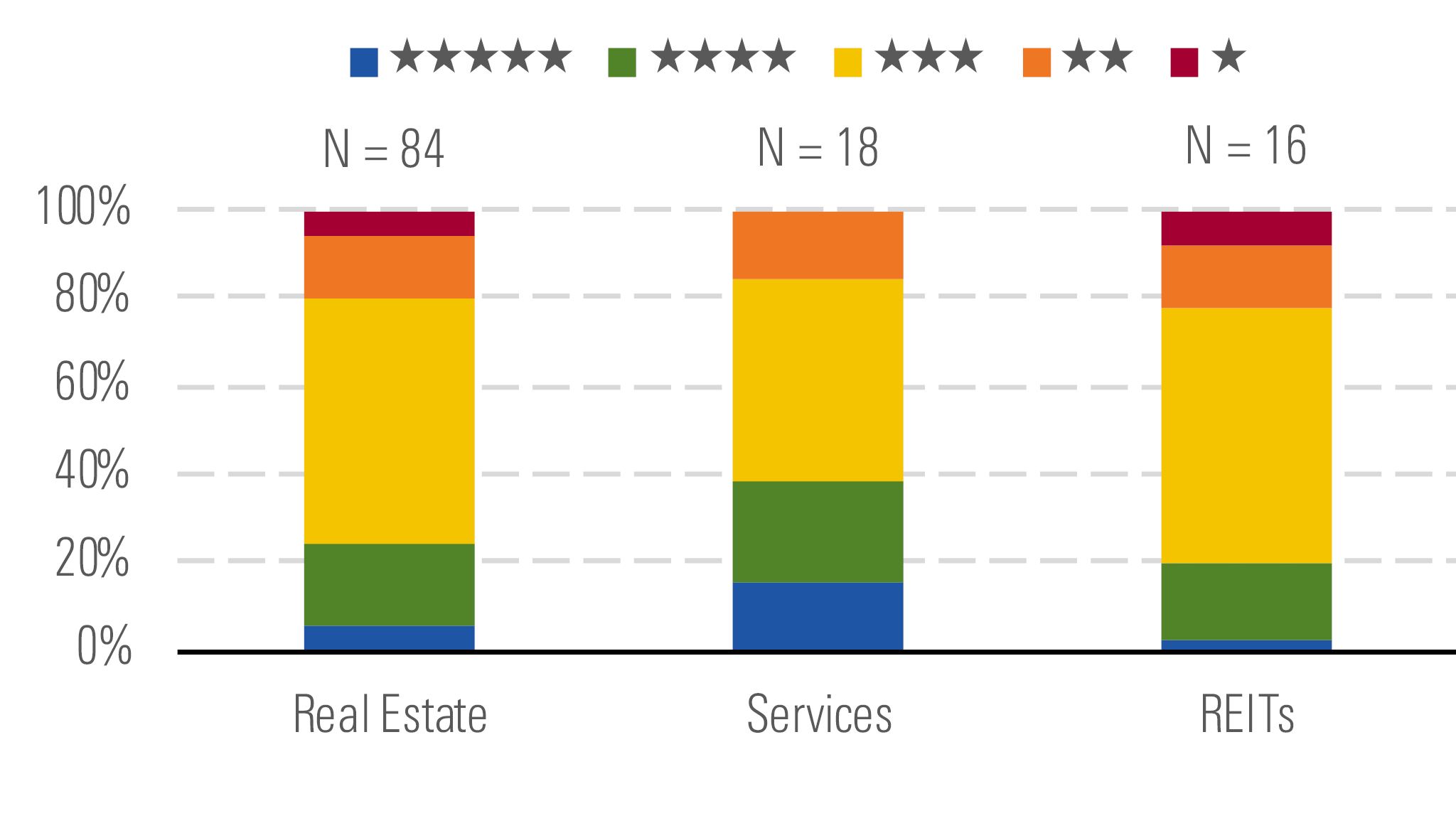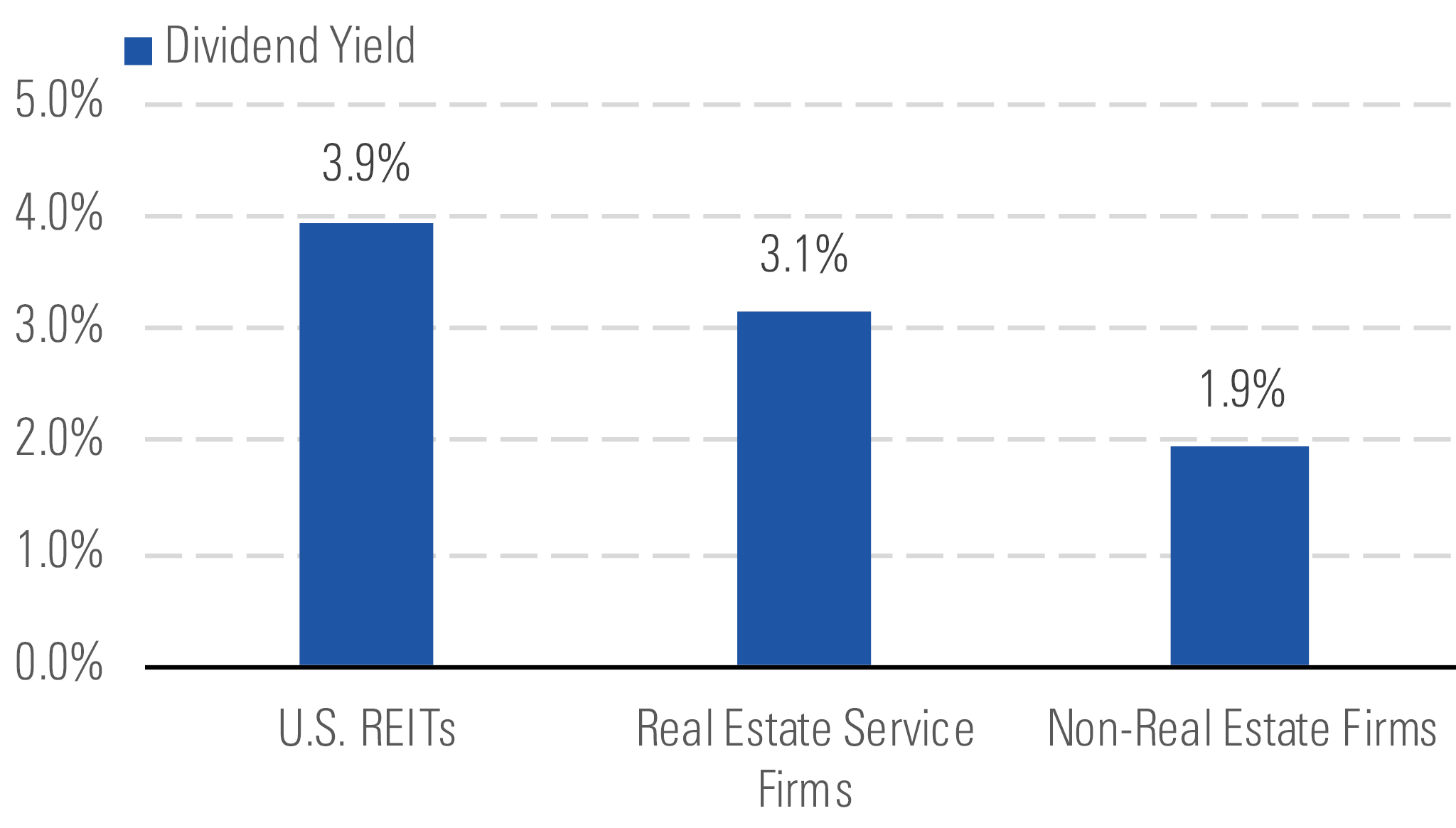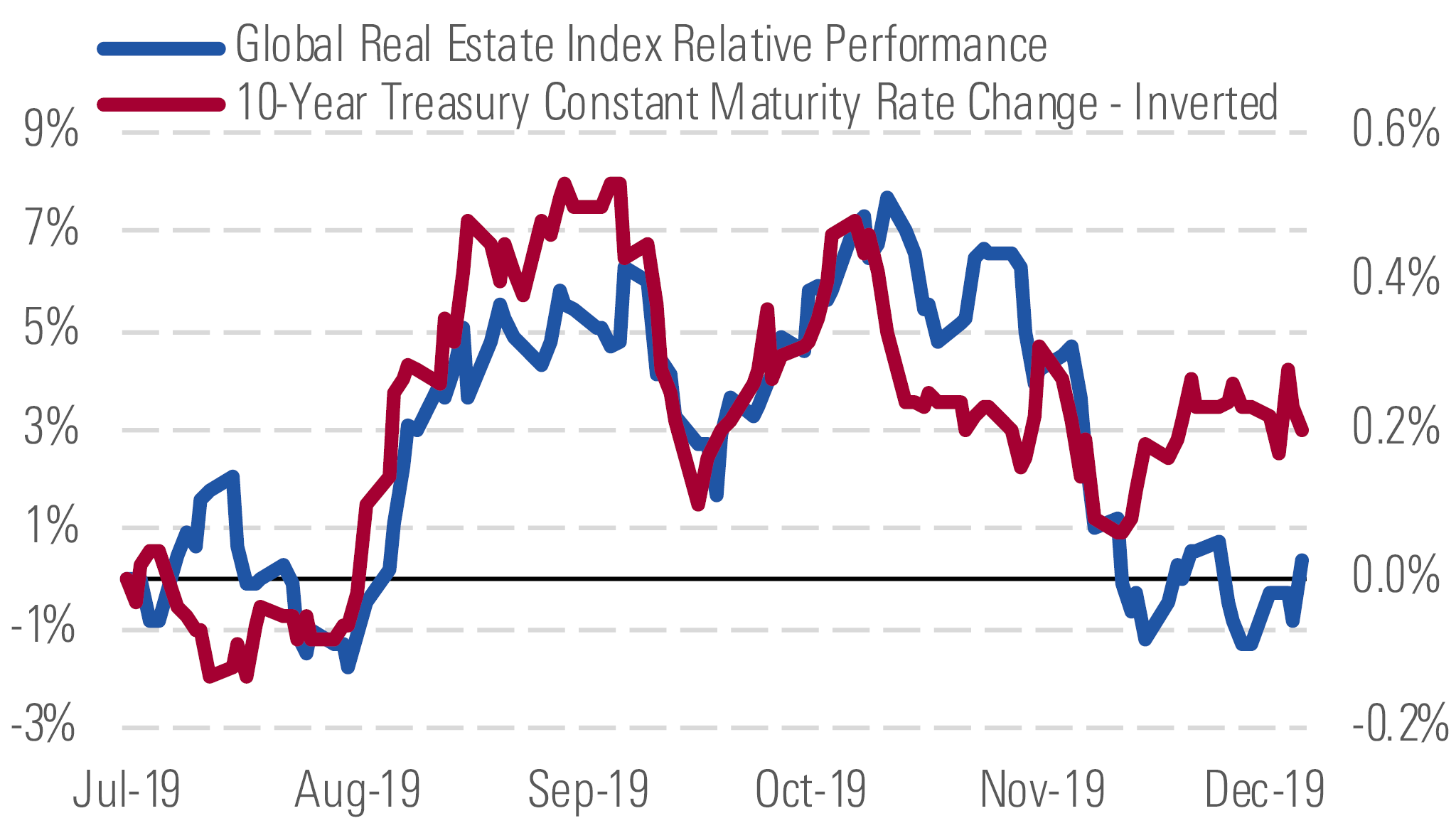Real Estate: Malls and Hotels Have the Most 4- and 5-Star Names
Overall, sector remains fairly valued and sensitive to interest rates.
The Morningstar US Real Estate Index rose 27% over the trailing 12 months (Exhibit 1) and is underperforming the broader U.S. equity market by 4% as economic concerns have slightly waned in the fourth quarter. REITs are defensive in nature because of their long-term leases with tenants and high dividend payouts, making them less attractive to investors when economic conditions improve.

Real estate is up but has underperformed the U.S. equity index. - source: Morningstar
Real estate remains a fairly valued sector. Our coverage currently trades at a 3% premium to our estimate of intrinsic value compared with being in line with our fair value estimates on average at the end of the second quarter. While there are many companies in the 3-star range, there are several economic sectors, such as malls and hotels, where 4- and 5-star names can be found (Exhibit 2).

Sector has mostly 3-star names, but there are some bargains. - source: Morningstar
The average dividend for real estate firms is higher than for the rest of our coverage (Exhibit 3). To receive tax-free status, REITs are required to pay out most of their net income as dividends to shareholders. These companies are frequently included in portfolios of income-oriented investors. As a result, the yields of REITs are often compared to government bond yields.

REITs have higher dividend yields than service firms and other sectors. - source: Morningstar
The high dividend payouts make REITs sensitive to changes to interest rates. When the yields of risk-free government bonds rise, REITs' yield spread falls and many income portfolios move from holding REIT positions to holding government bonds. Conversely, falling interest rates attract investors looking to receive more annual income than they can get from government bonds. As a result, the relative performance of real estate stocks, particularly REITs, will correlate with movements in the risk-free rate.
Movements in the 10-year U.S. government bond have corresponded with periods of real estate outperformance and underperformance. When the interest rate dropped 50 basis points in August, real estate underperformed by 7%. However, with interest rates rising 40 basis points from October through mid-November, real estate firms outperformed. We believe that the relative performance of real estate often mean reverts during periods of interest-rate stability, and the correlation with long-term performance isn't as strong. Therefore, we believe investors should concentrate on real estate fundamentals to find companies that will outperform.

Real estate relative performance has moved in line with interest rates. - source: Morningstar
Top Picks
Macerich MAC Economic Moat: Narrow Fair Value Estimate: $56 Fair Value Uncertainty: High
Class A malls continue to outperform other forms of brick-and-mortar retail. Over the past 12 months, Macerich's tenants have produced 13.1% sales per square foot growth, and occupancy costs dropped to 11.7%, the lowest point in six years. This has let Macerich continue to push double-digit re-leasing spreads. The stock has underperformed recently because of several tenant closures that will disrupt cash flow in 2019. However, we view these as opportunities to redevelop the assets and replace out-of-favor tenants, which should yield significant returns over the next few years.
Pebblebrook Hotel Trust PEB Economic Moat: None Fair Value Estimate: $30 Fair Value Uncertainty: High
Growth for hotels has steadily slowed over the past few years. Despite reaching all-time highs in occupancies, hotel operators have been unable to push prices as online travel agencies dramatically increase price discoverability for consumers. However, Pebblebrook has an opportunity to push net operating income growth higher than its peers over the next few years through expense savings measures. It acquired LaSalle Hotel Trust, a company Pebblebrook's current CEO previously founded, in 2018, and management believes it knows how to drive industry-leading margins out of the acquired portfolio.
Regency Centers REG Economic Moat: None Fair Value Estimate: $75 Fair Value Uncertainty: Medium
Regency's portfolio is filled with high-quality assets in population-dense, affluent markets. The company focuses on owning grocery-anchored centers with over 80% of properties featuring a grocery anchor and grocery stores representing slightly more than 20% of annual base rent. Regency's grocery anchors are strong draws to the centers, producing sales per square foot well above the national average, and they are very healthy, with low occupancy costs. The rest of the portfolio contains a substantial number of service-oriented tenants that are naturally resistant to e-commerce pressures.

/s3.amazonaws.com/arc-authors/morningstar/b9459b20-3908-4448-a36c-b728946ddbe5.jpg)
/cloudfront-us-east-1.images.arcpublishing.com/morningstar/LDGHWJAL2NFZJBVDHSFFNEULHE.jpg)
/cloudfront-us-east-1.images.arcpublishing.com/morningstar/F2S5UYTO5JG4FOO3S7LPAAIGO4.jpg)
/cloudfront-us-east-1.images.arcpublishing.com/morningstar/ZZNBDLNQHFDQ7GTK5NKTVHJYWA.jpg)
:quality(80)/s3.amazonaws.com/arc-authors/morningstar/b9459b20-3908-4448-a36c-b728946ddbe5.jpg)